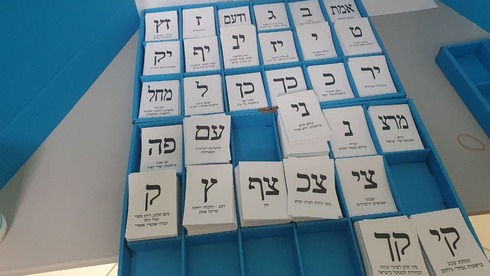
The total cost of four election campaigns in Israel within two years amounts to about NIS 12-14 billion. The cost of the current election is higher than the state budget, due to the special preparations of the Election Commission required in response to the Corona crisis.
According to the various bodies asked by Mammon and Ynet to estimate the extent of the damage and cost to the economy, it appears that in the elections to the 24th Knesset the direct damage to the economy reaches NIS 2.2 to 3 billion and the direct budgetary cost of financing the parties and running the election committee amounts to 800 million NIS. It should be noted that the amount of damage to the economy increases due to the Sabbath day also as the state product increases each year.
5 View the gallery
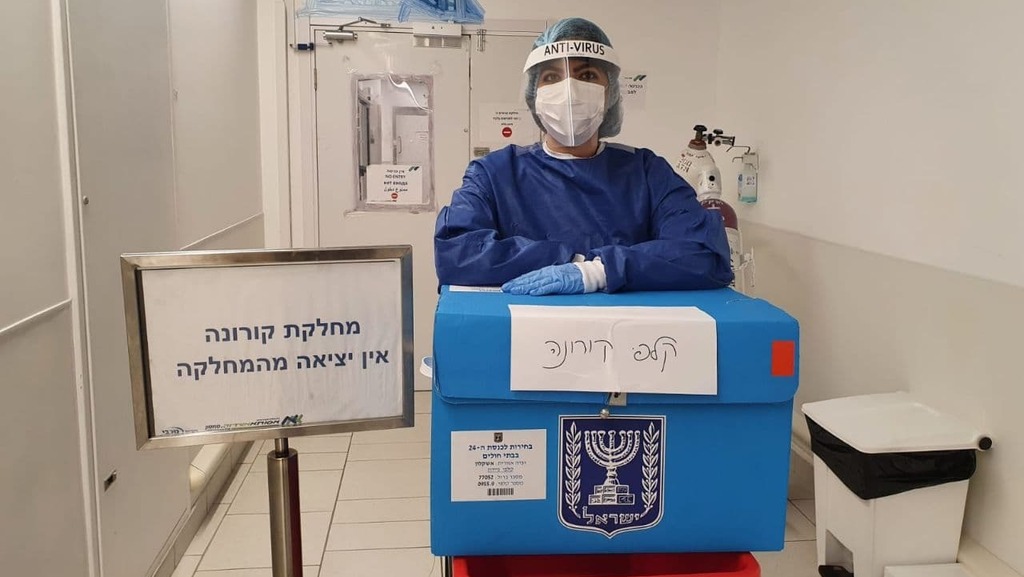

The cost of the 4 election campaigns: NIS 12-14 billion
(Photo: Spokeswoman for Assuta Hospital in Ashdod)
According to section 10 of the Basic Law: The Knesset and sections 71A and 136 of the Knesset Election Law, Knesset Election Day is a Sabbath day, on which there is no obligation to work, and no day off is deducted. Those who worked for an employer at least 14 consecutive days before Election Day are entitled to wages for the Sabbath day and those who work on Election Day are entitled to a wage of 200%, or to regular wages and a day off at another time. In addition, employers must pay their employees full wages on this day even if they are workers who have no right to vote at all, such as foreign workers in the nursing and agriculture industries and Palestinian workers.
In the State of Israel, due to the political situation, within about a year these laws came into force and required the Israeli economy, the entire business sector, and the small and medium business sector in particular to observe five sabbaticals, including the Sabbath for local elections, held on October 30, 2018. The general elections in April 2019 and September 2019, the sabbatical day due to the elections in March 2020 and the sabbatical day expected today, in the elections to the 24th Knesset.
5 View the gallery
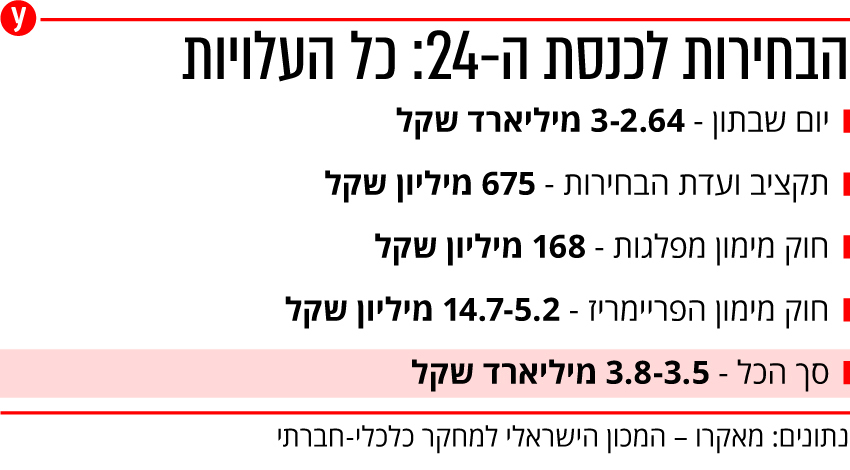

According to an estimate by the Macroeconomics Institute, headed by Dr. Ruby Nathanson, the cost of wage payments on the Sabbath for employees in the entire business sector is about NIS 1.5 billion. The estimate is based on wage cost data for employees, distinguishing between the public and business sectors. In addition, the calculation assumes that all employees are entitled to a full-paid day off, and that employees employed on the Sabbath will receive a 100% additional payment. The total for employers in the economy is calculated on the basis of the total number of employees in the economy, whether they took a day off or worked.
 Dr. Robbie NathansonPhoto: PR
Dr. Robbie NathansonPhoto: PRThe share of small and medium-sized businesses in carrying this burden of payments is 44.1% -50.16%. In financial terms, the economic damage caused and more will be caused to the small and medium business sector is estimated at NIS 2.64-3 billion. This amount is derived from the extent of the small and medium-sized business sector’s contribution to GDP and from its relative share in all employed persons in the economy.
The budget of the Election Commission has increased by about 10% -20% in each election campaign. An increase in the budget is expected as the population of Israel has grown consistently, the wages of the workers in the economy have increased and therefore the wages of the various polling stations and the rate of inflation has also increased despite a decade with almost zero inflation.
Between the elections to the 22nd Knesset and the 23rd Knesset, the budget of the Election Committee increased by 26.7%, despite a decrease of 2.6% in the number of ballots. The situation is different today, in the elections to the 24th Knesset, there will be about 12,127 polling stations around the country, a significant jump from the previous elections, which is mainly attributed to the Corona virus and the amount of 20 times more corona insulators today.
The budget approved for the 24th Knesset Election Committee is about NIS 675 million, compared to NIS 392 million for the 23rd Knesset election budget, which took place right at the beginning of the plague. This is the highest real jump in the committee’s budget for at least 20 years, and no less than one of the most difficult economic periods the state has ever known.
5 View the gallery
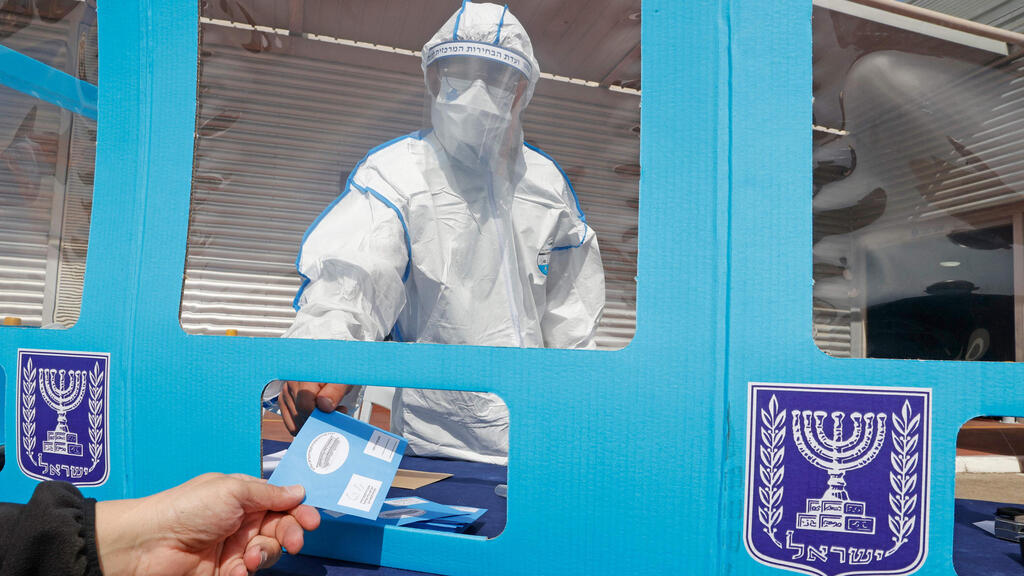

Demonstration of polling stations for Corona patients
(Photo: AFP)
Data transferred from the Knesset’s Research and Information Center to Finance and Ynet show that NIS 237.5 million from the Election Committee’s budget is this time the “Corona addition”. Adv. Orly Adas, CEO of the Central Election Commission, noted that only with regard to the special polling stations and the changes in the polling stations due to the Corona virus, an additional NIS 75 million was required. Transporting Corona patients to the polls will cost NIS 20 million today.
Another significant cost of holding the election is the price of the Party Financing Law. By law, each party receives funding from the state for its day-to-day operations as well as special funding from the state budget for the party’s election expenses. The amount of funding that each party receives depends on the number of Knesset members it nominates after the election, so that each Knesset member is equal to one funding unit. Today, the cost of the financing unit for parties is NIS 1.4 million. A quick account gives a total cost of an additional NIS 168 million at the expense of the state budget.
If that is not enough, the costs of the 2018 Primaries Financing Act should be added. By law, incumbent MKs are prohibited from raising donations for primaries and they will receive funding from the state even if they are not ultimately elected. By law, funding will be given if the party has at least 5,000 members and if in the primary the majority of party members vote. That is, parties where the list election is held at a center or conference, such as Meretz or the joint list, will not benefit from funding. In the first elections of 2019, about 46 grants were distributed to the incumbent Knesset members who are entitled to them in the amount of NIS 120,000-320,000, ie between NIS 5.2 and 14.7 million. In the elections to the 24th Knesset, a relatively similar number of new members are elected, so the cost to the state should be the same.
5 View the gallery
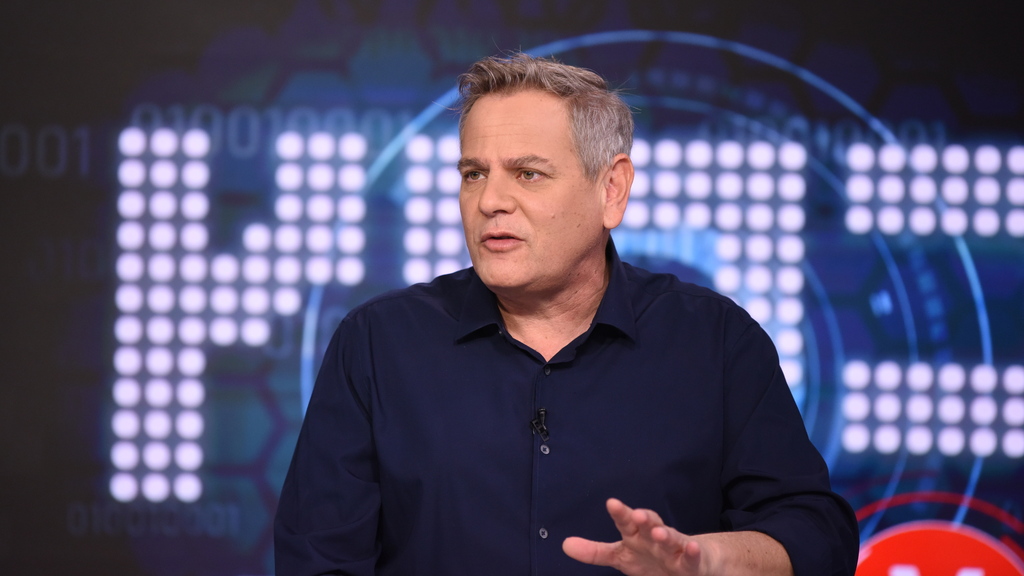

Will not benefit from the funding. Meretz chairman, Nitzan Horowitz, in an interview with the Ynet studio
(Photo: Kobi Cuenx)
If this is the only election for 2021, the Knesset is expected to convene for work only in the summer session that will open in May, it will last about two and a half months and after that the Knesset will go on vacation until the fall. In total, the new Knesset is expected to work for only 4-5 months in all of 2021. The budgetary cost of a transitional government and a Knesset limited to such a long period is enormous and is expected to amount to several billion shekels.
According to data from the Economic Research Department of the Manufacturers’ Association, which was submitted to Finance and Ynet yesterday, the additional cost of the election for the Sabbath due to national elections is estimated at NIS 2.2 billion per economy. This is without the costs of the Election Commission and the financing of the parties and the damage caused to the economy by a decrease in activity during the day. The cost to the business sector amounts to NIS 1.5 billion and to the public sector to NIS 0.7 billion.
The assessment is based on wage cost data for Israeli employees, distinguishing between the public and business sectors. This is when all employees are entitled to a day off with full pay and that employees who are employed on the Sabbath will receive an additional payment of 100%.
Thus, the total cost to employers in the economy is calculated whether the workers took a day off or worked on the general sabbatical. The Manufacturers’ Association noted that the calculations are based on data from the Central Bureau of Statistics, which reflect the data on the average monthly wage and the number of employees employed in the Israeli economy in recent months, including the number of unemployed due to the corona crisis.
According to the Association of Chambers of Commerce, Election Day, which is a sabbatical day used for shopping and cultural and entertainment activities within the family, will result in higher than ever revenue in the trade, hospitality and food and leisure activities industries.
5 View the gallery


Will we see the usual shopping hysteria despite the corona? Netanya Mall
(Photo: AFP)
On an election day that is not close to the holiday, like Pesach this time, the daily revenue is on average 5% higher, depending on the type of business and its size, compared to the daily average. The president of the Chancellor’s Chambers Association, Adv. Uriel Lin, told Mammon and Ynet that “during the corona period we would expect to see an increase of about 3%, but since this year’s election day comes out in the week of Passover, a higher increase of about 7% “.
The total revenue in the retail trade, hospitality and food and leisure activities on this day will be about NIS 1 billion, according to the Economics Division of the Association of Chambers of Commerce, based on an analysis of past years.
On the day of the 24th Knesset election day, active business activity is expected in most businesses in the trade and services industries and they are expected to operate beyond normal – with the exit from the third closure – including shopping centers, retail chains, malls, restaurants, leisure activities and others, expected to offer special offers and discounts.
At the same time, the Association of Chambers of Commerce says that the cost should be taken into account for the entire business sector as many businesses will have to pay their employees for an additional day off or alternatively a wage of 200% if they work on the same day off. According to conservative estimates, the loss of income on Election Day to the entire economy is estimated at NIS 2 billion.
According to Adv. Uriel Lin, president of the Association of Chambers of Commerce, despite the expected profit for the trade and services industries, this is a distorted situation that must be corrected by law: “It is a pity that the Knesset has not been able to do the simplest thing. Impose unnecessary expenses on the business sector. Some of the workers, who were given a day off on Election Day, do not take advantage of this day to actually go to the polls, vote and exercise their democratic right, but take advantage of the day off for recreation. Another folly lies in the fact that foreign workers who do not have the right to vote take time off and reduce the exercise of the voting right of people with disabilities. “
Lynn added, “The day off is granted at the employer’s expense for the purpose of exercising a democratic right, and anyone who does not vote has no reason to take a day off at the employer’s expense. Therefore, legislation should stipulate that an employee who did not work on election day did not exercise his right to vote. The freedom he took will be imputed to his duty as taking freedom at his own expense. “